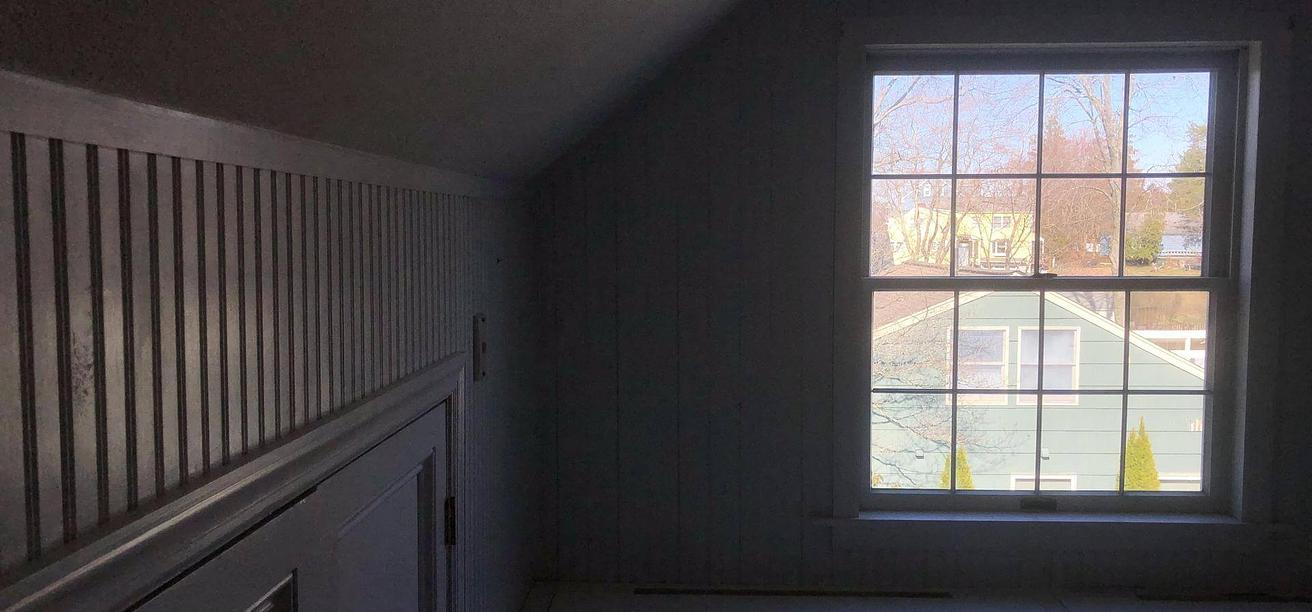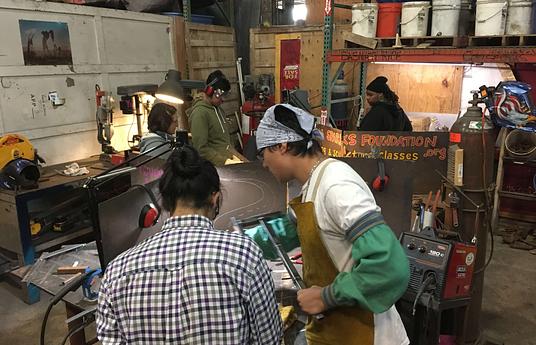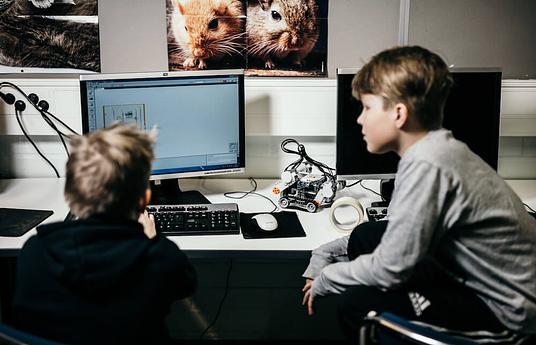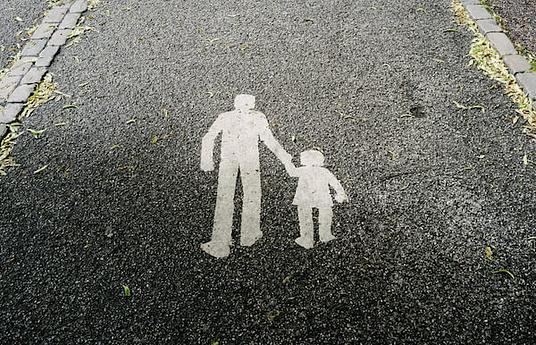Students, parents, and educators are feeling the extraordinary ripple effect of the coronavirus as schools shut down and quarantine methods are ordered amidst the public health emergency. In this series, we want to share best practices from our community and how our educators and innovators are managing school shutdowns, distance learning and more. This piece has been reposted with permission from Chris Jackson's article on the Big Picture Learning website.
At the very heart of the Big Picture Learning philosophy lies the notion that there is so much more to learn outside of the classroom than can be learned inside of it. That venturing out into the community unleashes an untapped knowledge base waiting to be filled by mentors in the field. That the way to build future success for our young people is by encouraging them to start building their social capital now.
But we as an organization, a network of schools, a community itself, are faced with an unflinching realization that it is growing increasingly irresponsible for us to send young people -- however strong their immune systems may be -- out into their communities at a time when our city and state leaders, not to mention our common sense, tell us that social distancing is the best -- if not only -- method for addressing the Coronavirus pandemic through curve flattening.
But this doesn’t mean we have to sacrifice our principles. Indeed, as an increasing number of schools and school districts are temporarily shutting their doors, we may be provided with a once in a lifetime opportunity to double down on our philosophy of teaching, learning and activism. For those schools, students, educators and parents who wonder what a Big Picture Learning approach to education looks like under quarantine, we suggest these tips:
Realize that you’re prepared for this: At the prospect of schools being shut for several weeks, a school board member in my hometown remarked: “If we’re talking about an extensive piece of time, how does that really work? Because they can’t teach themselves.” Alas, this is explicitly what students in Big Picture Learning schools are taught. Expressly, they learn how to learn. Is this done with the consideration that a global pandemic may at some point make this a necessity? Of course not. But it is done with the full knowledge that at some point students will be set out in a world in which they’ll need to fend for themselves. It may be hubristic to say, but I’d posit that Big Picture Learning students are more prepared than any other students in the nation to face the impact of this pandemic.
No Backsliding
This has long been a Big Picture philosophy. Our approach to education is seen as too revolutionary, too alien to some. But in our communities we encourage educators that once they’ve made forward progress to not cede any ground. As an increasing number of schools are finding a need to pivot to distance learning, they’re relying on new technologies (like Zoom and Google classroom) to help deliver old pedagogies. A digital worksheet is still a worksheet. A classroom video conference is just another method for delivering rote learning. There is no doubt that district leaders are faced with the prospect of addressing a crisis they could have never anticipated in a short amount of time. But this doesn’t require shortcutting the learning process itself.
A Home-Economics Renaissance
If students are forced to be a home, there’s a high likelihood that parents are there as well. I’ve seen plenty of criticism that amid a “real-world learning” revolution in education, students are still graduating without the ability to balance their checkbooks or file their taxes. Parents can fill the mentorship role by taking the time to talk to their children about the everyday tasks of maintaining a household, and multiplying that by the Coronavirus’ impact on the home. Learning how to properly disinfect a kitchen is a very real skill. Getting through to insurance companies takes deft practice. Learning how to cook for oneself will pay important post-secondary dividends. We can expect many societal disruptions, big and small, that require a new level of self-reliance. As adults navigate what this means in their everyday life, students who are not in school can act as in-home apprentices.
Really real Real-World Learning
Asking schools and students to not go into their communities is truly a tough pill for Big Picture Learning to swallow. But we have to be practical. But this doesn’t require the sacrifice of the important relationships students have built with their internship mentors over the course of several months and, in some cases, years. We encourage students -- with the help of Learning Through Interest (LTI) Coordinators -- to schedule regular telephone check-ins with their internship mentors; not only to preserve these relationships, but also to learn how they themselves are adapting and -- yes -- struggling with the impact that the Coronavirus may be having on their sector and their livelihood. Trust us when we say that the mentors will find as much value in these regular check-ins as students do. Though this is a global issue, sequester and quarantine inevitably makes people feel as if they’re in this alone. These check ins are surely a lifeline for both parties as we navigate this period of time, however long it may be.
Interest-Based Learning through a New Frame
There is no aspect of society that is untouched by the Coronavirus pandemic. As such, there is no need to redirect learning from students’ interests. Rather than fall back on a content-based lesson structure which many schools who are implementing distance-learning practices for the first time are likely to do, we encourage schools to institute profound independent study practices resulting in school-wide exhibitions once students return about how the pandemic directly impacted their sphere of interest. What happened in the world of veterinary medicine? Did auto mechanics see a dramatic reduction in business? How are future sports-managers impacted as professional teams debate the prospect of playing without fans in attendance? If your student has an interest, it WILL be affected. Having them research those effects can shine new light on what their future may look like, should they continue to pursue that interest, but also strengthens your existing educational practices by building them into the existing foundations of the Big Picture distinguishers.
Breathe
If you as an educator or a student are feeling guilty about sneaking in that mid-day binge-watch of your favorite Netflix series, or stealing a few minutes to play a few rounds of Fortnite, rest easy. We are all looking for ways to blow off stress. There are proven therapeutic benefits to finding distractions. It does us no good to be constantly worrying about this crisis, nor to be constantly worried about the prospect of being discovered “not” learning. Whichever deliverable seemed most important a week ago has considerable less importance today. Not only for you but for everyone. Take this new realization into a post-Coronavirus world as a way to revive the power of humility. While you’re at it, feel free to throw in a meditation or two.
Build up Kinetic Energy for Activism
This is not the time to take to the streets. But it is the time to take notice of the ways in which elected officials are and are not responding appropriately to this crisis. Make no mistake, there are injustices occurring at this very moment. Regressive policies for addressing this crisis once again rule the day. Low-income students who don’t go to school will lose access to two meals a day. Single-parents who work multiple jobs to make ends meet may now find themselves having to stay home without adequate access to childcare. Those who cannot afford health insurance will pay the highest costs for testing and medicine. Minimum-wage employees -- who already struggle to make ends meet -- will likely be the first to find themselves out of work. If we do not observe and heed the lessons that come out of this pandemic we will, as history has proven time and again, repeat them ad nauseam.
In the coming days, you'll hear from more Big Picture Learning staff and school leaders about how they're navigating this new situation in their own homes and in their own communities. About how school closures have required us to reassess the ways in which we educate our own children. About the power of the backyard vacation. About how previous crisis and school closures have prepared some to think about how the school acts as the center of the community whether it's open or closed. We'll also be asking you about your own stories and your own experiences. After all, we are truly in this together.
We thank our community members like Chris Jackson for offering support and resources in this time of need. Check out their website for stories of resilience and reflection from their staff and school leaders. For more articles, innovations & resources, head to our Educator Toolkit especially designed to support educators & parents during this COVID-19 outbreak.



